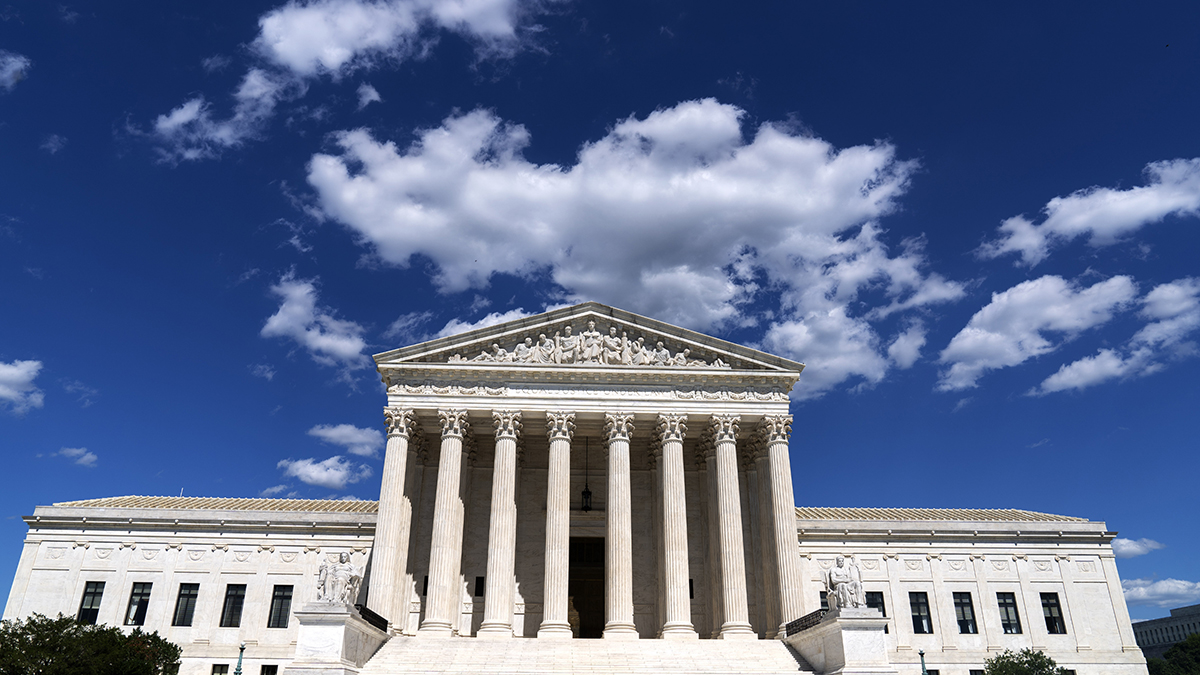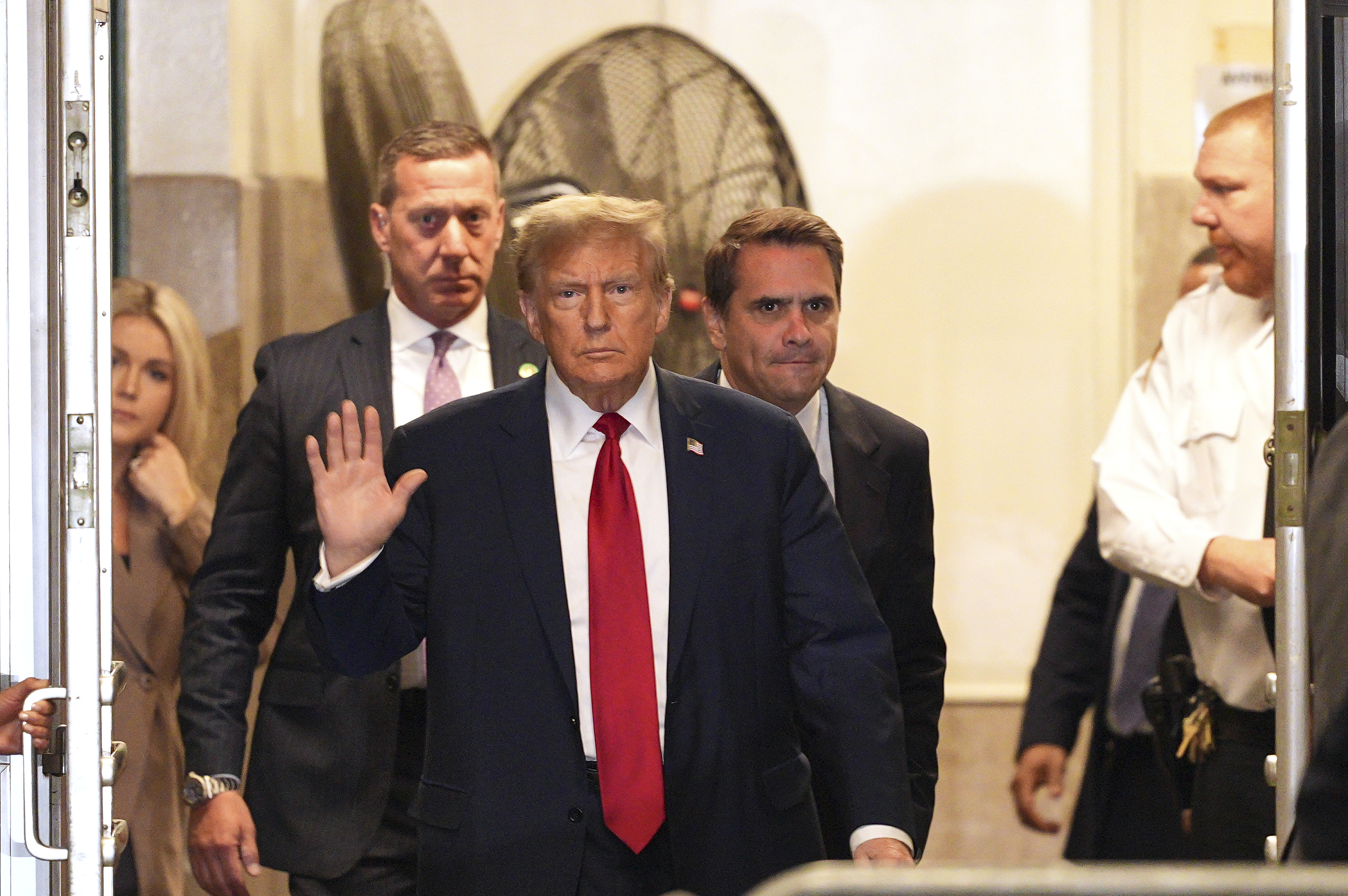Special counsel Robert Mueller charged 13 Russians and three Russian organizations for allegedly interfering in the U.S. 2016 presidential elections with the intention of promoting President Donald Trump’s candidacy by posting as American activists, creating Facebook groups and organizing fake rallies.
Deputy Attorney General Rod Rosenstein said at a press conference Friday that the Russians "allegedly conducted what they called 'information warfare' against the United States," with the goal of "spreading distrust against candidates and the political system in general."
Charges listed in the 37-page indictment include conspiracy, wire fraud, bank fraud and aggravated identity theft, and they are the most direct allegations of Russian meddling in the 2016 election that put Trump in the White House. It also marks the first criminal charges against Russians believed to have secretly worked to influence the outcome.
Rosenstein said his team has not had communication with Russia about the indictments and would go through normal channels for the extradition of those indicted. However, the U.S. government has no extradition treaty with Russia. In the past, Russia has not cooperated with these requests, so it's unlikely those charged will ever face trial.
The Justice Department has for years supported indicting foreign defendants in absentia as a way of publicly shaming them and effectively barring them from foreign travel.
Russian Foreign Minister Sergei Lavrov rejected the indictments on Saturday and dismissed them "just blabber."
"I have no response. You can publish anything and we can see those indictments multiplying," he said at the Munich Security Conference.
U.S. & World
Moments later at the conference, U.S. national security advisor H.R. McMaster disagreed with Lavrov and said the "the evidence is now incontrovertible" of Russia's interference."
The indictment said some of the defendants communicated with "unwitting individuals associated with the Trump Campaign and with other political activists to seek to coordinate political activities." But Rosenstein said that "there is no allegation in this indictment that any American was a knowing participant in this illegal activity."
He added that "there is no allegation in the indictment that the charged conduct altered the outcome of the 2016 election."
Trump used that to claim vindication on Twitter, pointing to the assertion that the charged conduct in the indictment did not affect the election results. He reiterated his claim Friday that there was "no collusion" and that the "Trump campaign did nothing wrong."
The indictment, brought by a federal grand jury in the District of Columbia on Friday, states that "from in or around 2014 to the present, defendant knowingly and intentionally conspired with each other (and with persons known and unknown to the Grand Jury) to defraud the United States ... for the purpose of interfering with the U.S. political and electoral processes, including the presidential election of 2016."
In his Friday tweet, Trump called attention to the 2014 beginning of the operation, highlighting that it was "long before I announced that I would run for President."
But the indictment does not resolve the collusion question at the heart of the continuing Mueller probe, which before Friday had produced charges against four Trump associates, including former national security advisor Michael Flynn and former Trump Campaign manager Paul Manafort.
Mueller is also investigating possible links between Russian meddling and members of Trump's campaign.
The Russians charged, the indictment says, used and transferred the social security numbers and birth dates of unknowing Americans. They then used those identifications to open PayPal accounts, create fake driver's licenses and post on social media accounts using the victims' identities.
In a statement obtained by NBC News, PayPal said it is working with authorities and did so to identify and stop improper and possibly illegal activity.
"PayPal is intensely focused on combatting and preventing the illicit use of our services," the company said.
The social media pages and groups created by those charged were designed to attract U.S. audiences, among them YouTube, Facebook, Instagram and Twitter. They supported the presidential campaign of then-candidate Donald Trump and disparaged Hillary Clinton. The Russians used their fictitious online personas to distribute derogatory information about Clinton, to denigrate other candidates such as Texas Sen. Ted Cruz and Florida Sen. Mario Rubio and to support Trump and Vermont Sen. Bernie Sanders.
Cruz and Rubio ran against Trump in the Republican primary; Sanders opposed Clinton in the Democratic primary.
They used election-related hashtags such as #MAGA, #Trump2016, #TrumpTrain, #IWontProtectHillary and #Hillary4Prison.
They began to promote allegations of voter fraud by the Democratic Party, including through ads they had purchased on Facebook. One post, on an account they controlled called "Stop A.I.," alleged that "Hillary Clinton has already committed voter fraud during the Democrat Iowa Caucus."
In June 2016, defendants and their co-conspirators, posing online as Americans, communicated with an American affiliated with a Texas-based grassroots organization. They learned from that person that they should focus their activities on “purple states like Colorado, Virginia & Florida.”
"This indictment serves as a reminder that people are not always who they appear to be on the internet," Rosenstein told reporters. "The indictment alleges that the Russian conspirators want to promote discord in the United States and undermine public confidence in democracy. We must not allow them to succeed."
Trump echoed Rosenstein's call in a White House statement, saying, "It is more important than ever before to come together as Americans. We cannot allow those seeking to sow confusion, discord, and rancor to be successful. It’s time we stop the outlandish partisan attacks, wild and false allegations, and far-fetched theories, which only serve to further the agendas of bad actors, like Russia, and do nothing to protect the principles of our institutions. We must unite as Americans to protect the integrity of our democracy and our elections."
The indictment also said that those charged staged political rallies inside the United States, posing as Americans and U.S. grassroots groups. The defendants allegedly staged rallies both in support of then-president-elect Trump and opposed to him in New York on the same day.
Pro-Trump rallies took place in June and July 2016 in NYC, as well as in August 2016 in Florida. A "Support Hillary" rally took place in July 2016 in DC.
Ahead of a Florida rally, the Russians paid one person to build a cage on a flatbed truck and another to wear a costume portraying Clinton in a prison uniform. But they also organized some rallies opposing Trump, including one in New York after the election called "Trump is NOT my president."
The Internet Research Agency, a notorious Russian troll farm registered with the Russian government as a Russian corporate entity in July 2013, obscured its conduct by operating through a number of other Russian entities. It employed hundreds of individuals, including those who created fictitious personas. More than 80 people were involved in what was at times referred to as the “translator project,” which focused on the U.S. population. The organization’s strategy by May 2014 was to interfere with the 2016 presidential election with the goal of “spread[ing] distrust towards the candidates and the political system in general.”
The organization was funded by catering and management companies controlled by defendant Yevgeniy Viktorovich Prigozhin, a wealthy St. Petersburg businessman often referred to as "Putin's chef" in the media because his organizations had hosted dinners for Russian President Vladimir Putin and foreign leaders.
Prigozhin was quoted in Russian state media responding to the indictments, saying, "Americans are really impressionable people. They see what they want to see. I greatly respect them. I’m not upset at all that I am on this list. If they want to see the devil, let them see him."
As Mueller's investigation picked up steam, the Russians destroyed evidence of their activities, with one of those indicted sending an email in September 2017 to a family member that said the FBI had "busted" them so they were covering their tracks.
That person, Irina Viktorovna Kaverzina, wrote the family member, "I created all of these pictures and posts, and the Americans believed that it was written by their people."
The Associated Press contributed to this report.



